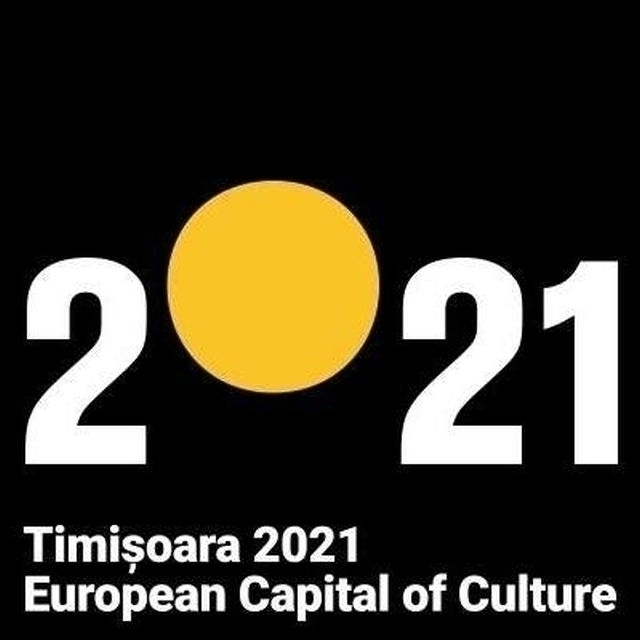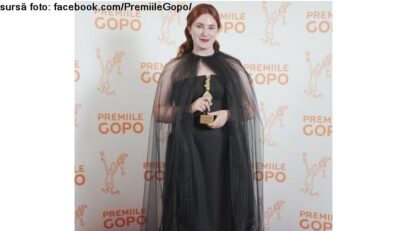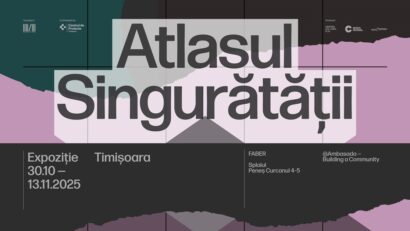Timisoara, the European Capital of Culture in 2021
Timisoara is the Romanian city designated European Capital of Culture in 2021.

Corina Sabău, 01.10.2016, 11:53
Timisoara is the Romanian city designated
European Capital of Culture in 2021. The announcement was made by Steve Green,
the head of the EU’s international jury of experts. Three other Romanian
cities, Baia Mare, Bucharest and Cluj-Napoca, competed, alongside Timisoara,
for the title. According to the Romanian Culture Minister, Corina Suteu, it is
an honour to have this title granted for the second time to a city from
Romania. Corina Suteu also said that after the city of Sibiu held this title in
2007, it became clear that this title was a great opportunity for a city, in
cultural, social and economic terms. Corina Suteu:
Well, I first believe European cultural
capitals are important because they make the proof that Ministries of Culture are still useful. I am of those who
don’ t forget that, in fact, Melina Mercouri and Jacques Lang, both visionary
ministers of culture, met once and out of this meeting grew the idea of having
a contest of European capitals of culture. So I am a believer in the fact that,
if the state can be an architect for culture, and if a state can grow inside
this architecture, freedom of creation, this is a label that European countries
still have. Also, I am a believer in the fact that today, in the global
context, having European capitals of culture, and here I am greeting also the
representatives of Greece, Montenegro and Serbia, who are going to be European
capitals of culture together with Romania in 2021, so I am still a believer in
the fact that culture is in fact the one that generates a sense of European
belonging. If any generates a sense of European belonging, it is culture.
Through culture we are European and Europe is what it is, because this kind of
diversity brings us together.
The title of European Capital of Culture is granted
to a city from the European Union, or from a pre-candidate or candidate country
for the duration of one year. 60 cities will have been awarded this title by
2019. The programme is considered the European Union’s emblematic cultural
initiative. Since 1985, the European Union has designated one or two cities
each year, from candidate or pre-candidate countries, as European Capitals of
Culture.
For the duration of one year, the designated cities
are expected to come up with innovative and intense cultural programmes meant
to highlight the richness, diversity and similarities of European culture
before an international audience. Karel Bartak is Head
of Unit with the Creative Europe Programme, part of the Directorate-General
Education & Culture. He emphasised the importance of the title of
European Capital of Culture.
It started in
1985 and it has become one of the most prestigious year-long international
events in the field of culture and we think that for all of us today, in these
challenging times for Europe, this scheme is very, very valid and even more
than ever before. We think that this is a good moment to come back to the
basics, to come back to the core values of the EU and we think as well that the
concept of the European Capital of Culture is a very good contribution to this.
These capitals provide opportunities for Europeans to meet, to discover the
fantastic cultural diversity we have across the continent, the fresh look at
our common history and common values, promote mutual understanding,
inter-cultural dialogue among our citizens and the feeling of belonging to one
commune. We have the feeling, at this period of time, that some of these values
are being questioned, that they are being lost, we can see also the rise of
populism in many countries, and as a response, as part of the response to this
is to promote the scheme of the European capitals of culture as a kind of
inclusive and citizen-oriented initiative to bring Europe closer to the people.
It also opens our cities to the world, illustrating the European Union’s
willingness to promote culture as something which is embedded in the core of
the EU action and we see that every Euro invested in culture is bringing
benefits to communities, to our countries, and at the same time we see that the
culture sectors, above all the creative sectors have been resisting the
pressure of the recent economic crisis mo re than many other traditional
branches.
As a city winning the title of European Capital of
Culture, Timisoara will also receive a prize of 1.5 million euros from the
European Union.
We have imagined an extraordinary journey, from
loneliness to belonging, from light, through darkness and back, travelling
through three theories dealing with the challenges Europe is facing today:
people, places and connections. Timisoara is the perfect place for the
initiation of a strong and systematic cultural endeavour seeking to bring hope
back to troubled European communities. We focus on the public, on people, on
citizens, on voices – unheard, but not lost. We have a story to tell – that of
a cosmopolitan city, a city that has resisted and reinvented itself at the
frontiers of central and South-Eastern Europe.
This was a quote from Timisoara’s bid for the title
of European Capital of Culture. And we continue with another quote from the
team of the European Capital of Culture Association:
Sometimes, great changes begin at the street
corner. In 1884, Timisoara was the first
city in continental Europe with electric streetlight. In 1989, the Revolution
against the Ceausescu regime flared up on the streets of Timisoara. Starting
from the strong metaphor of light, we intend to export the values we believe in
to other cities across Europe, in order to encourage an open and visionary
attitude among citizens. The slogan of the campaign is the very essence of our
message: Enlighten the city through yourself!






























